Boil Water Advisories (BWA)
PRECAUTIONARY MEASURES FOR RESIDENTIAL SETTINGS
When are BWA's issued?
BWA's are issued when conditions or concerns may adversely affect the quality or safety of your potable water supply. A BWA is put in place to protect you from harmful organisms that may be in your water and can make you and your family sick.
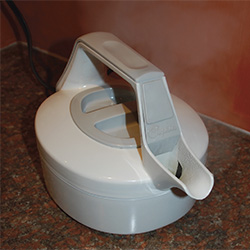
What do you do during a BWA?
Windsor-Essex County Health Unit advises that all water used for consumption must be either boiled or be commercially bottled water. Home filtration devices (filters) do not kill bacteria. In your home, these devices could be portable, plumbed-in, or faucet mounted.
- To boil, water must be heated to a rolling boil for at least one (1) minute to kill all disease-causing microorganisms prior to use. The water should then be cooled and stored in a clean, covered container and refrigerated until you are ready to use it.
In addition to using boiled water for people and pets to drink, you must also use it for making ice cubes, preparing foods and beverages, washing fruits and vegetables, and brushing teeth.
You can continue to use your tap water for:
- Handwashing
- Laundry
- Showering/Bathing
- Adults may continue to use the supply, as long as the water is not swallowed.
- Young children, immunocompromised, as well as individuals with skin lesions or open wounds should take sponge baths with boiled water.
Besides drinking, what should boiled water be used for?
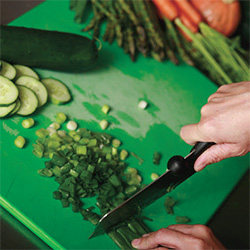
Food Preparation
This includes but is not limited to ready to eat foods such as fruits and vegetables, concentrated fruit drinks, and breast milk substitutes (formula). However, when preparing food which requires boiling, you may do so as long as water is brought to a hard boil for at least one (1) minute. Discard all food and beverages previously made with water, such as ice cubes, breast milk substitutes (formula), and juices. Disinfect all containers with a household bleach solution described below and remake with boiled water.
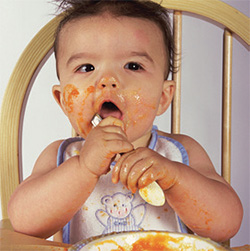
Infant Feeding
Only boiled water should be used if you are feeding infants with a breast milk substitute (formula) or washing infant feeding supplies. Bottled water should be boiled as well to ensure that any potential bacteria are removed. Keep in mind that mixing juices and other foods should all be done with boiled water when feeding your infant or child during a BWA.
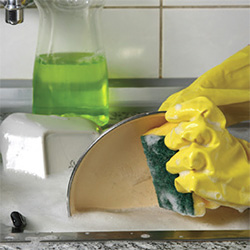
Dishwashing
Hand dishwashing can be done in the usual manner with hot tap water, however final rinse should be done with boiled or bottled water, or disinfected in a bleach solution of 20mL (4 teaspoons) of unscented household bleach to 10 L of lukewarm water. Dishes should be left to air dry.
Mechanical dishwashers may be used as long as a chlorinated detergent is used (read product label) in the cycle, or there is a sanitizing cycle (check owner’s manual).
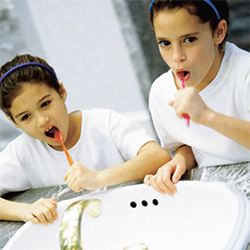
Brushing Teeth
Use boiled or bottled water.
Waterborne Outbreak
In the event of a waterborne outbreak, extra precautions may be required including: using the bleach solution or an alcohol based disinfectant on the hands after handwashing, allowing dishes to soak in the bleach solution for 1 minute before air drying, and sponge bathing only. Follow the advice of the Health Unit regarding additional precautions in the event of an outbreak.
Your Health Is Our Concern
Continue with these procedures until you have been notified by the Windsor-Essex County Health Unit that the boil water advisory has been lifted. Be sure to follow any instructions provided regarding flushing pipes before use.
For more information on Safe Water or Water Advisories
You can speak with a Public Health Inspector at 519-258-2146 ext. 4475
References:
Health Canada. (2015). Guidance for issuing and rescinding boil water advisories in Canadian drinking water supplies. Retrieved from http://www.healthycanadians.gc.ca/publications/healthy-living-vie-saine/water-advisories-avis-eau/index-eng.php
Health Canada. (2008). Boil water advisories and boil water orders.

